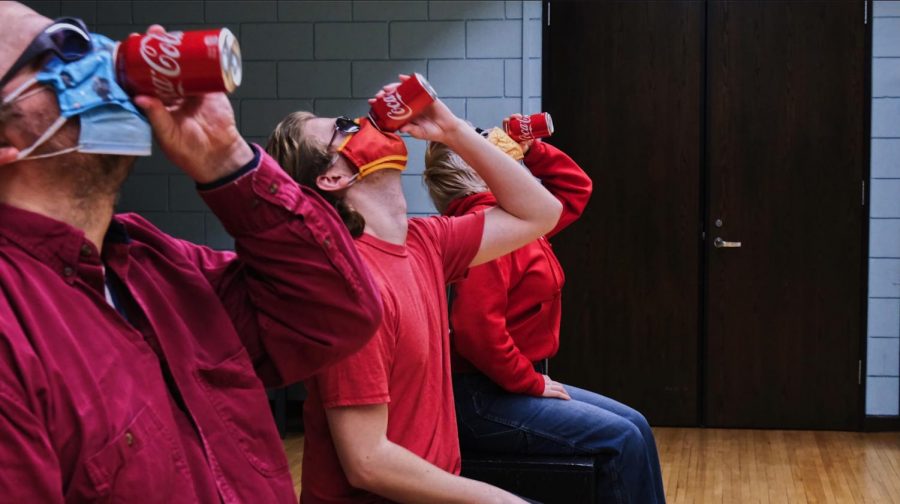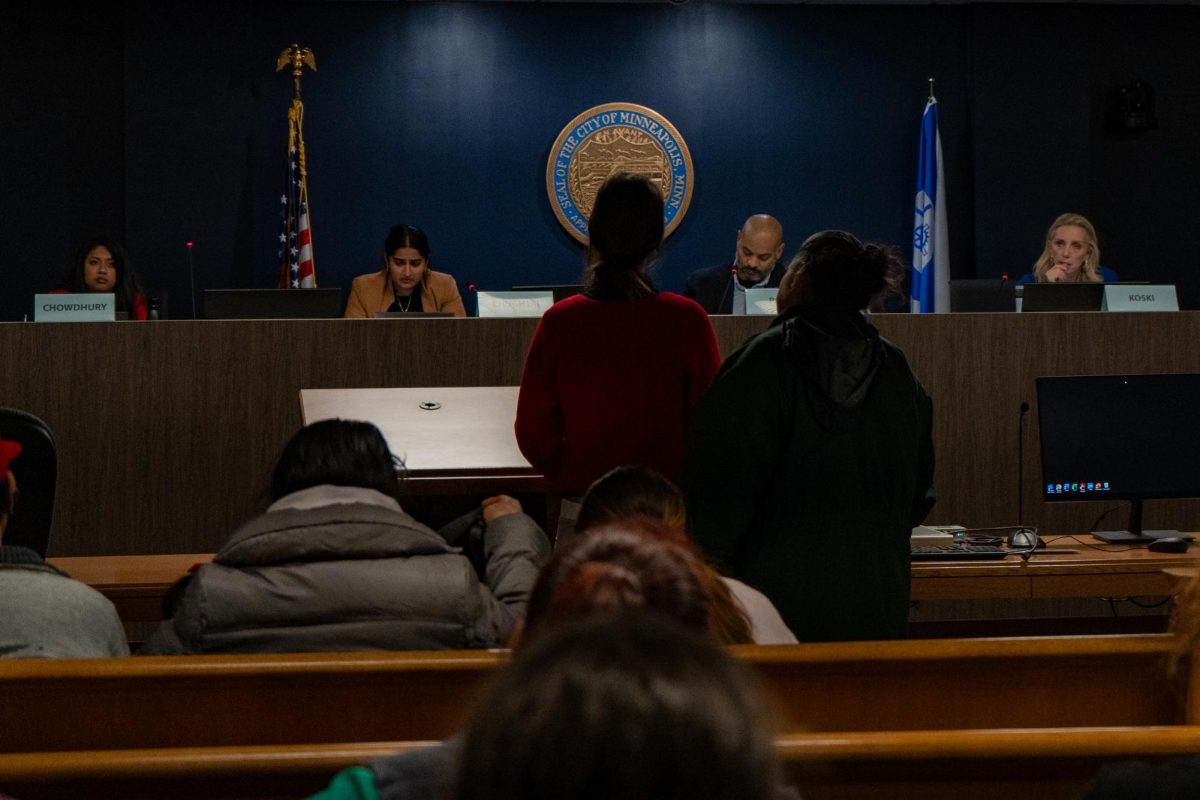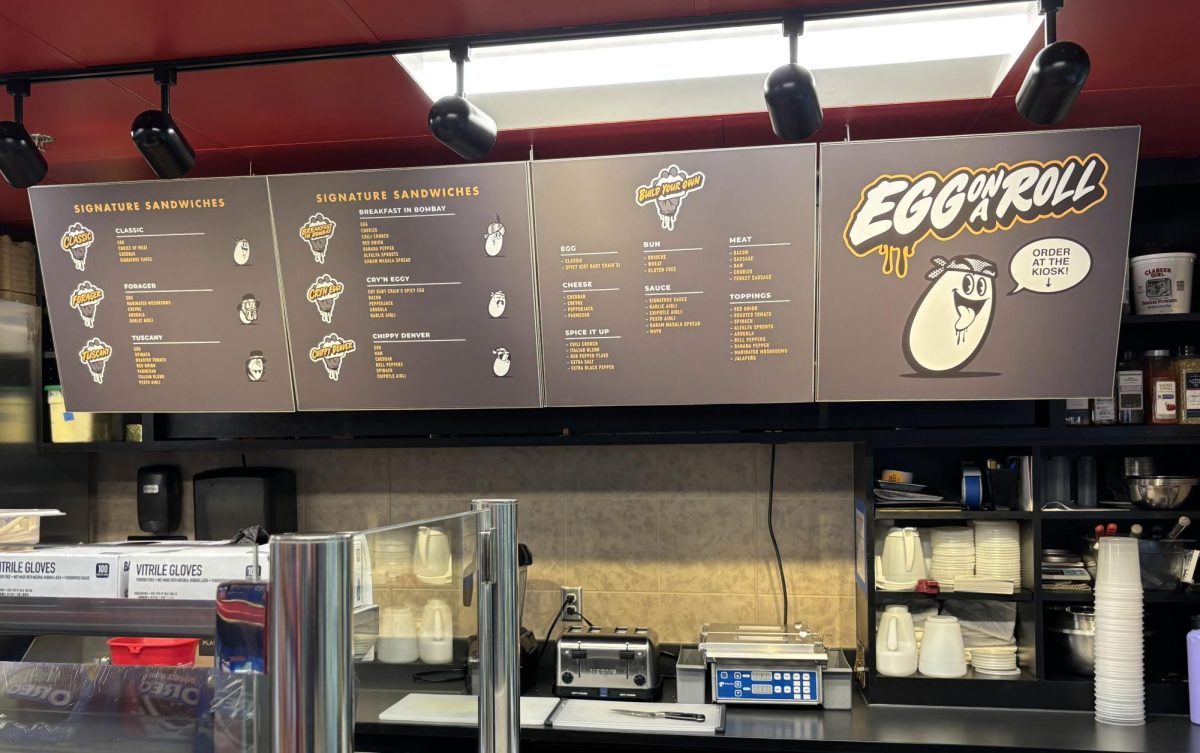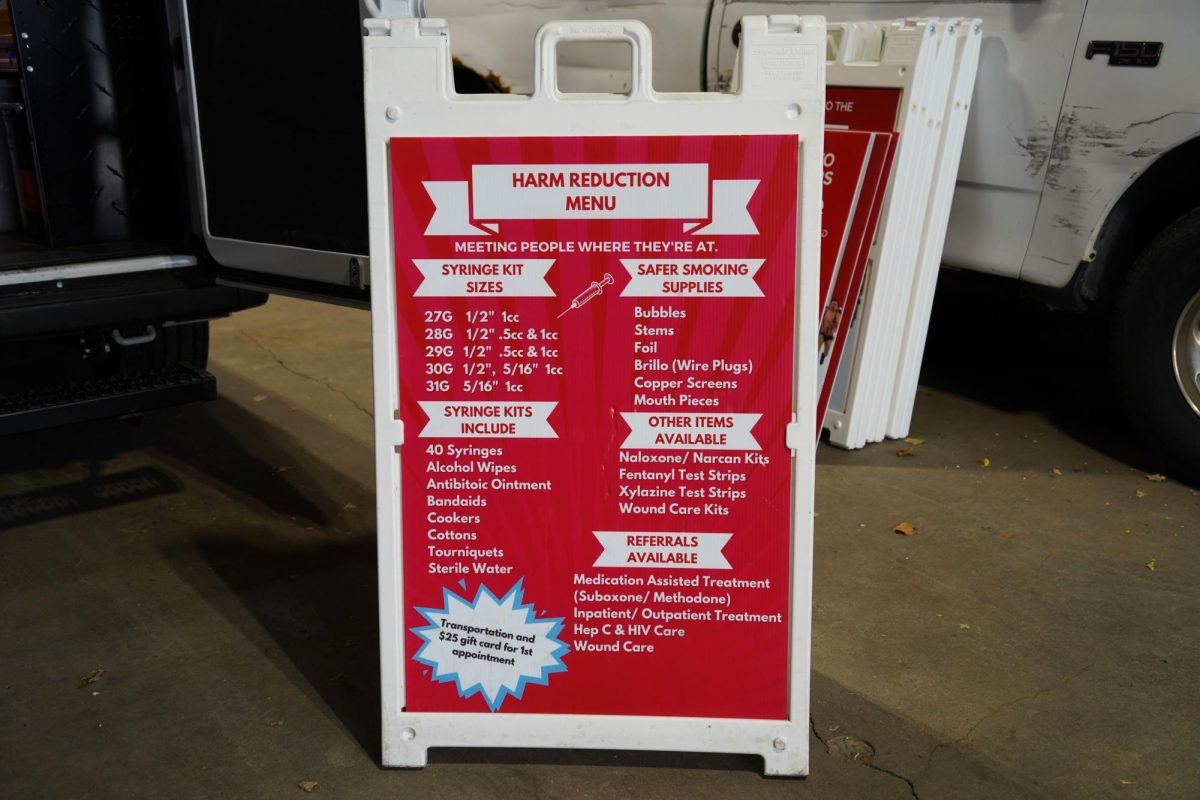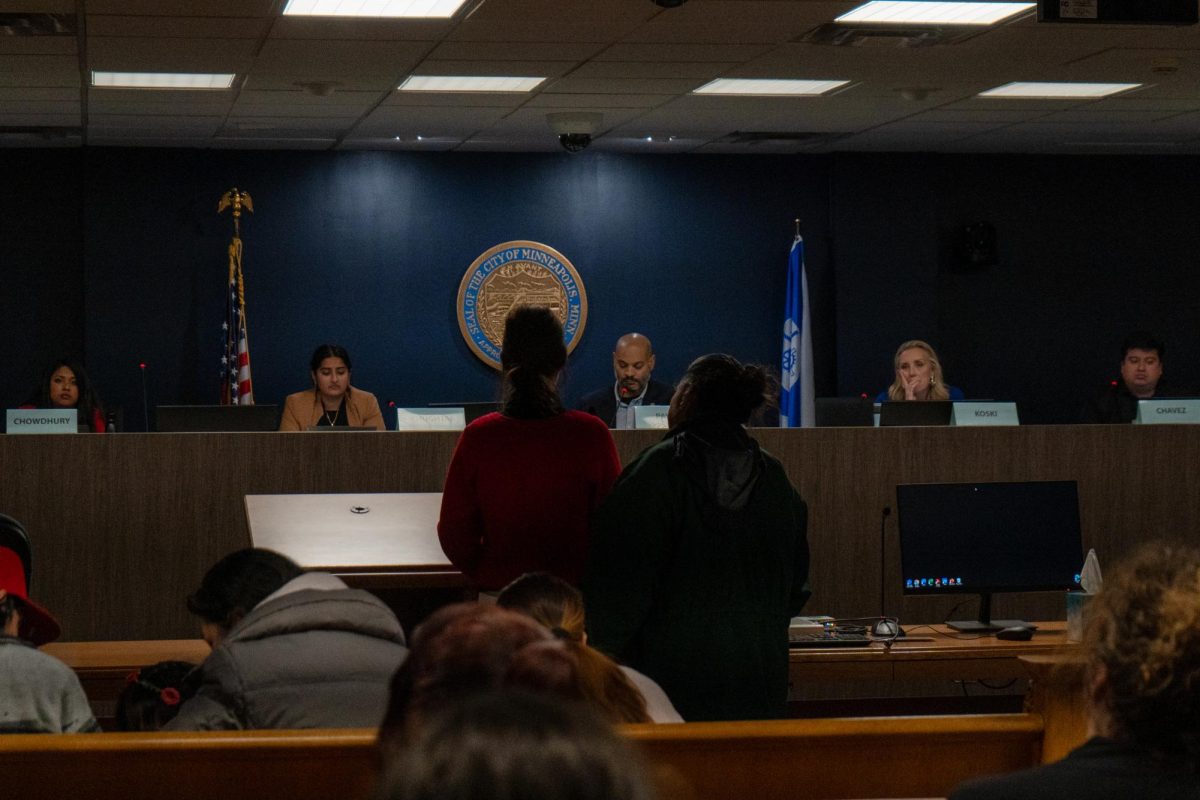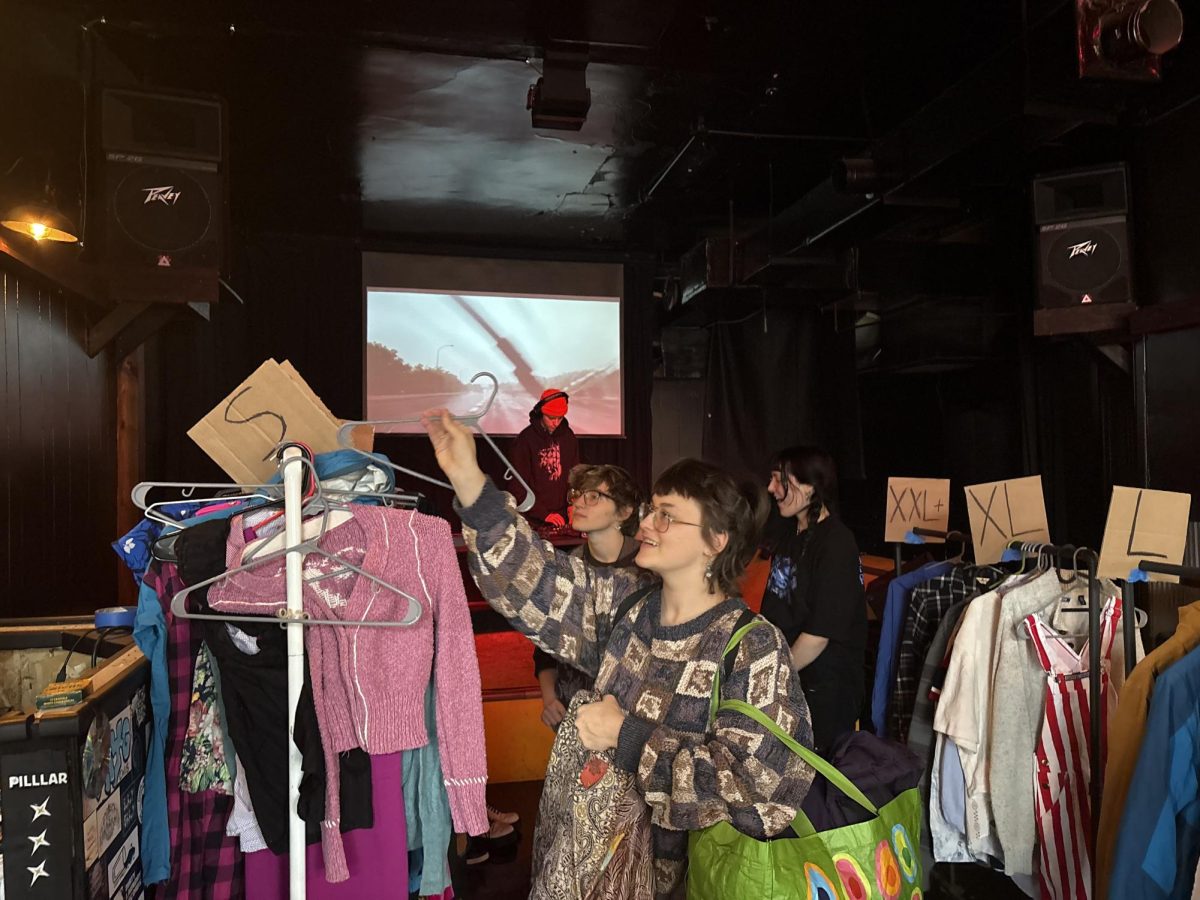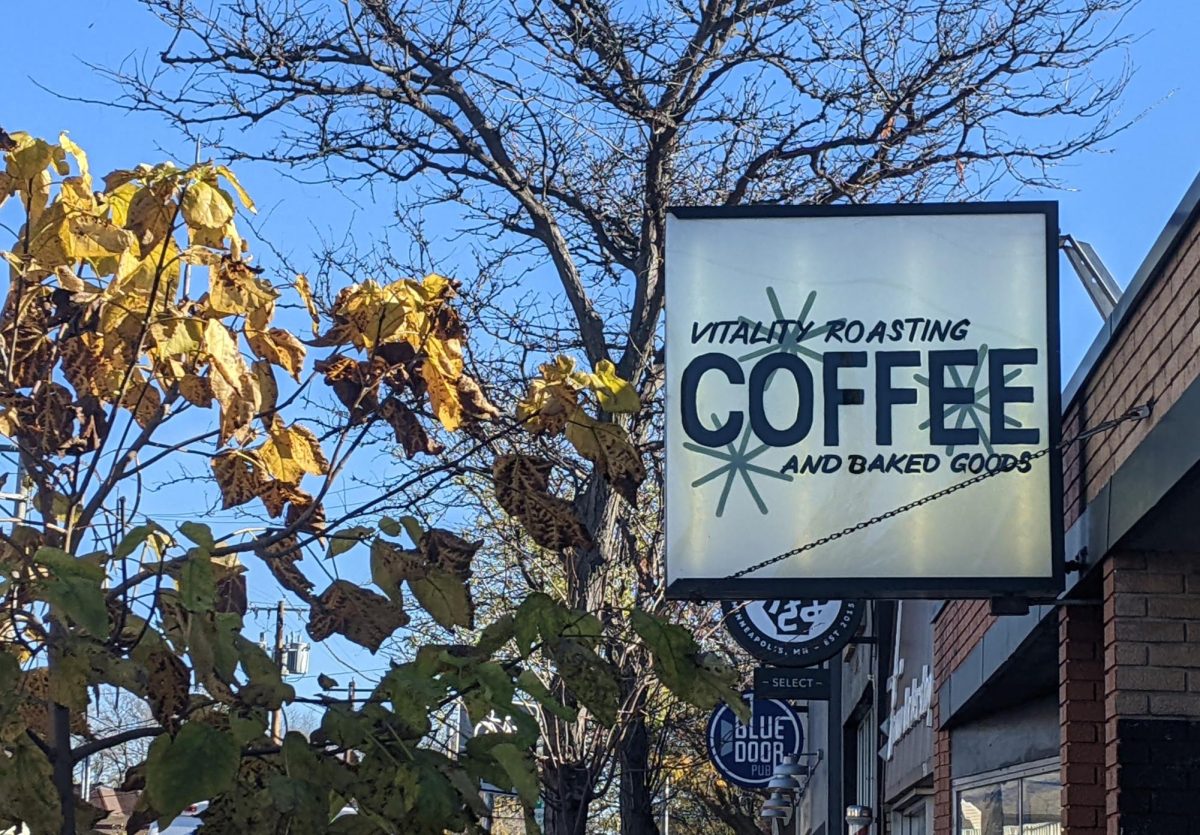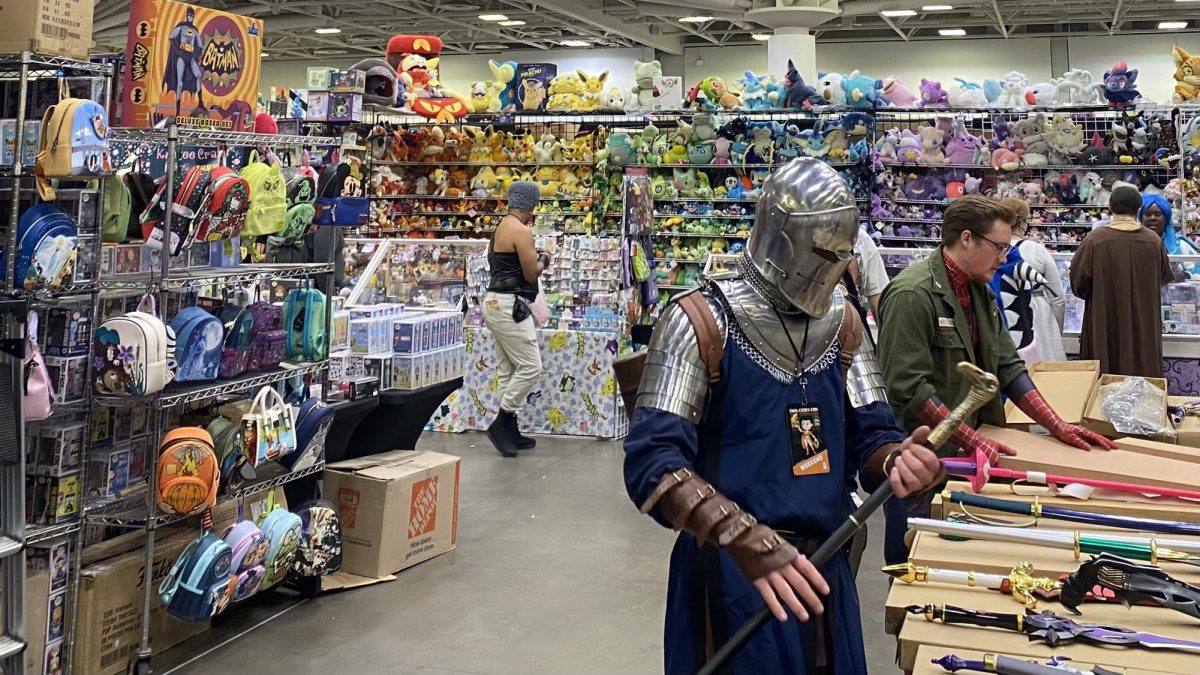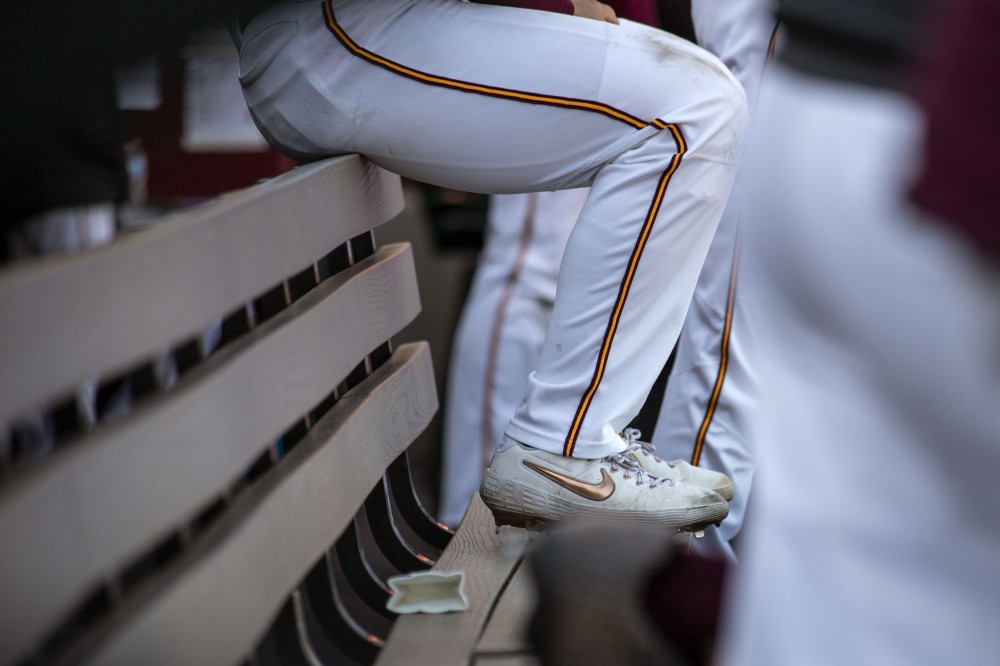A new University of Minnesota theater class examines current issues in the healthcare industry by combining Greek tragedies and pharmacy.
The class combines components of the theater arts Performance and Social Change course and Topics in Theatre course to explore how pharmaceutical substances have been used to enhance or damage the idea of a healthy body and how to convey these ideas theatrically.
The course is a collaboration between theater professors on the University’s Twin Cities campus and a College of Pharmacy professor on the University’s Duluth campus.
The professors based the class on the Greek word “pharmakon,” which has three meanings in English: remedy, poison and scapegoat.
“There is this really interesting connection between pharmacy and theater through the terminology and ideas of the pharmakon,” said Dr. Sonja Kuftinec, one of two theater professors leading the class. “What we are interested in is exploring that duality of anything that is extractive as both being potentially healing and potentially poisoning.”
Luverne Seifert is the second theater professor leading the course. In addition to partnering on course development with Kuftinec, Seifert serves as the acting and character development coach for the students in the final weeks of the class.
The theater department teaches courses in creative collaboration that are generally based on a research topic, Seifert said. From that research, classes will build four original plays each year.
This year, students will use what they have learned about pharmacy and Greek tragedies to put together a final performance on May 7.
A basis in pharmacy
Part of the class is devoted to learning about the University’s Native American Medicine Gardens in St. Paul. This unit tasks students with rethinking humans’ contemporary relationship to plants as extractive and reimagining a coexisting environment.
The unit also examines Native Americans’ view of health to include traditional substances and medications coming from the earth, said Dr. Paul Ranelli, a professor in the College of Pharmacy on the Duluth campus and a guest instructor in the class.
“They were the early pharmacists,” Ranelli said. “We focused on the Indigenous connection to plants because of our location and their connection to the earth. The Indigenous connection finds it important to keep those plants in our soil so that plants can be of value to us.”
With a background in social pharmacy, Ranelli helped the class to understand how the modern industrialization of pharmaceuticals has affected both pharmacists and patients.
“Before the mass production of pharmaceuticals, the pharmacist was a purveyor and a maker of medicine,” Ranelli said. “Most medicines are now being made by a manufacturer, so the pharmacists are losing the connection to the making of the product.”
Included in that process are opioids, Ranelli added, which saw a large increase in use in the United States beginning in the late 1990s.
A product of the opium poppy plant, opiates have been a traditional medicine for numerous cultures across time as a remedy for pain relief.
But when placed in the context of a capitalist system, opioids — which include all opiates and synthetic compounds like fentanyl — can become something else, Kuftinec said.
“When opioids are placed into a healthcare system where health is commodified in a larger capitalist frame, they can become something that is quite toxic,” Kuftinec said. “Both to the individuals that may be caught in a cycle of addiction and to the larger public.”
Included in the students’ final creative performance will be a telling of the modern interaction between patients, medication and the healthcare system.
From 2015 to 2018, nearly 50% of Americans used prescription drugs within 30 days of when they were surveyed, according to the Centers for Disease Control and Prevention. Ranelli said he believes that theater is a useful storytelling outlet for the frequent experience of taking medication.
“There have been a number of plays about what it is like to be a survivor of cancer, for example, and as someone in social pharmacy, I felt that the medication part of this whole story needed a focus,” Ranelli said. “I just want those stories of our experiences with medication to be told.”
Student experience
Seifert said he appreciates how the class allows students to reflect upon their own relationships with medication.
“It is very vulnerable but exciting in terms of how we will be able to translate those relationships into our final performances,” he said.
One assignment asked students to draw on their own experiences to create a two-minute piece about their journeys and relationships with prescription drugs.
Emily Vaillancourt, a second-year student, focused on birth control and the hoops that she said many women have to jump through to access it. First-year student Regan Carter did her assignment on the same topic.
“As someone who has had relatively pleasant experiences with medicine, it is different to hear other people’s experiences trying to get the prescription that they need and all of those hurdles,” Carter said. “But understanding and taking on a perspective that is not mine, that is what theater is all about.”
Bridging performing arts and pharmacy proves the unique storytelling ability that theater offers, Vaillancourt said.
“Theater can be about anything. It does not just have to be a written, entertaining play. Theater can be experimental, informative and so different,” Vaillancourt said.
Carter added that for theater arts majors like Vaillancourt and herself, the technical background research on pharmacy would improve their abilities as performers.
“There is no such thing as wasted knowledge in theater,” Carter said. “Having this understanding of medicine and the medical industry really helps inform my future approaches to how medicine interacts with characters, other systems and the rest of society.”


